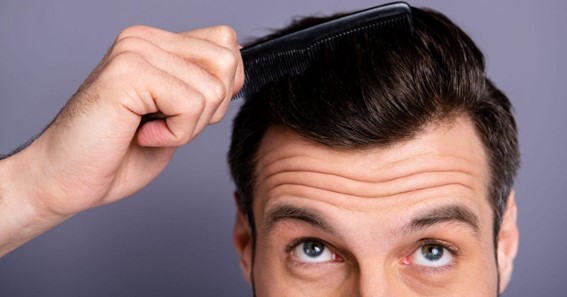So, you had a hair transplant, eh? Way to go! Now you can kiss baldness goodbye and work on your luscious locks, right? Well, not too fast.
Gro Clinics is a go-to facility for Melbourne hair transplant surgery patients. Their team endeavors to offer an end-to-end experience so you can get the most from your hair transplant. As part of this commitment, they offer essential tips to help you take care of your newly transplanted hair for the long term.
After all, caring for your hair post-surgery is as important as the procedure. As such, let’s quickly walk through some of the team’s pointers for remarkable results:
-
Steer Away from Direct Sunlight
Much as you love to catch some rays, consider shielding your freshly transplanted hair from direct sunlight. Sun exposure can damage the scalp and, in turn, compromise the efficacy of the hair procedure. If you’re planning to stay outdoors for extended periods, wear a hat or scarf to protect your head and hair from harsh sunlight – at least during the first few months after the transplant.
Click here – How A Professional Roof Inspection Can Save You Thousands?
-
Avoid Strenuous Exercise
We know it’s tempting to maintain your training routine. However, engaging in vigorous activities can cause excessive sweating and stress to the scalp. This, in turn, may adversely affect the newly transplanted hair.
Moreover, exertion may result in increased bleeding or damage to the newly transplanted hair follicles. As such, avoid strenuous exercise for at least two weeks following the hair transplant procedure. Lying low for a while allows your scalp to heal and your hair to grow. A short walk or light jogging is permissible, but remember to shower afterward.
-
Use Minimal Hair Products
The scalp is usually sensitive following a hair transplant. To that effect, use lukewarm water and mild chemical-free shampoos while cleaning your hair. Opt for products designed specifically for sensitive skin or, better yet, what your doctor recommends.
Dryness is your scalp’s worst enemy. It can cause itching and flaking and even compromise the growth of transplanted hair. To prevent this, use a moisturizing hair conditioner.
Your doctor may also offer or recommend a lotion to moisturize and protect the scalp from bacteria and infection post-surgery. Follow their instructions to a tee. Apply the lotion by tapping on the donor and transplanted areas. While at it, don’t scratch the surgical spot or remove the scabs, as this may cause irritation and infection.
-
Apply Antibiotics
After surgery, your doctor may prescribe antibiotics such as erythromycin, minocycline, and ciprofloxacin to prevent infection. Adhere to the course as prescribed, and don’t miss a single dose.
An antibiotic cream may also come in handy as your scalp heals. Your doctor should guide you on the right way to apply the cream. Typically, such creams help deal with inflammation or scalp irritation – on or around the transplanted areas.
Also, avoid scratching your scalp. While itchiness is common after surgery, try your best to resist the urge. Itchiness is typically a good sign, as it shows the follicles are growing. Thus, scratching can cause infection and damage to the new hair follicles. If the urge is too strong, take an antihistamine pill or moisturizer.
Click here – 5 Reasons To Choose Paramount For Your Commercial Roofing Needs
-
Take Your Vitamins
To ensure the results you’re after, take vitamins such as biotin, zinc, and vitamin B12. They act as a supplement to promote hair growth and inhibit infection. You can take them daily or apply them directly to the scalp in cream form. Whichever you choose, ask your doctor before beginning any supplementation routine.
-
Go Easy on Styling
We understand the urge to show off your new, fuller head of hair by styling it with gels, mousses, and other products. However, styling your hair too soon can damage the transplanted follicles. To that effect, avoid harsh treatments for at least two months to allow the scalp to heal.
-
Adjust Your Sleeping Position
We all sleep differently. Some of us toss and turn, while others sleep in one position all night. Consider changing your sleeping position for the first two weeks following a hair transplant. As such, it’s advisable to sleep on your back.
Also, prop up your head when you want to catch some Zs. A few pillows should suffice to elevate your head. This allows circulation to the scalp, thus minimizing inflammation and promoting faster healing. Some clinics offer special pillows for this purpose.
Ideally, these tips can help you take good care of your hair following a transplant procedure. However, remember to adhere to your doctor’s instructions and advice to ensure a positive outcome. And once everything goes according to plan, you can confidently flaunt your new head of hair.

